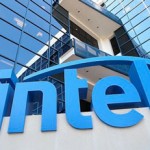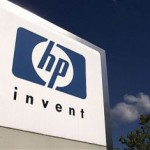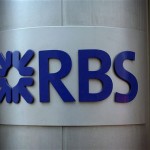Legal Suit Sheds Light on Secret Trading Technology

Ashbury Heights accuses former data partner of misusing intellectual property
A legal dispute in San Francisco is shedding light on the secret tools that some of the biggest quantitative hedge funds, including WorldQuant LLC and Two Sigma Investments LLC, use to predict stock prices.
In the lawsuit, Ashbury Heights Capital LLC, a little-known investment company founded by two Massachusetts Institute of Technology graduates, has accused a former data partner of underreporting revenue and misusing intellectual property. This month, a judge ruled against a motion from the defendants to move the case to confidential arbitration and set a trial for September 2016.
The case has provided a rare look inside some of the most private firms on Wall Street, and the data and analytical techniques they use to trade stocks.
At the core of the dispute is a methodology designed by Ashbury that helps predict “how stock prices would move, largely based on economic information and extrapolations from companies’ network of customer-supplier relationships,” the complaint says.
Ashbury’s system helps an investor accurately model the impact of disparate events on publicly traded companies using supply-chain analysis, according to court documents. For instance, it might help a company predict what would happen to Intel Corp.’s share price if International Business Machine Corp. sees a drop in sales.
A 2010 white paper by its creators said the system uses similar tools to how Google ranks pages on the Internet alongside a branch of mathematics called graph theory to “provide a meaningful, consistent analysis of the economy over the long term and ultimately provide a basis for alpha generation.”
An innovation in the system was its ability to estimate values that weren’t publicly available, Ashbury said in court documents.
Founders Eric McGill and Paul Mingardi met at MIT, where they both received degrees in the university’s joint master of business administration and master of science program, and later formed Ashbury in San Francisco. The firm operates a small hedge fund and conducts analysis.
In 2010, Ashbury formed a partnership with a data company called Revere Data. In the partnership, Revere licensed Ashbury’s system to several hedge funds alongside its proprietary data set, the documents say.
The new product, described by Revere as its “Relationship Analytics Engine,” boosted sales and brought in new clients, court documents say.
WorldQuant and Two Sigma were among Revere’s quantitative hedge-fund clients, which also included Renaissance Technologies LLC and BlueCrest Capital Management LLP, court documents show. The Director of National Intelligence also signed up for a trial of the data, the documents show.
Quantitative investors rely mainly on mathematical models and use computers to bet on statistical relationships among securities prices and other sets of data.
Representatives of the hedge funds and the Director of National Intelligence declined to comment.
Ashbury alleges that Revere broke the terms of its contract by not reporting all the revenue it received from licensing and misused Ashbury’s intellectual property. Revere was sold to FactSet Research Systems Inc., a publicly traded analytics company, in 2013 for $15 million. FactSet is a defendant in Ashbury’s suit.
Rachel Stern, a senior vice president of FactSet, declined to comment.
Jonathan Bass, a lawyer representing Revere and former co-chairman of the company Douglas Engmann, said in a statement that his clients “performed their contractual obligations to Ashbury Heights Capital.”
Mr. Engmann, now the chairman of Sage Brokerage Holdings in San Francisco, is a former chairman of the now defunct Pacific Stock Exchange.
Source: WSJ – Legal Suit Sheds Light on Secret Trading Technology





























